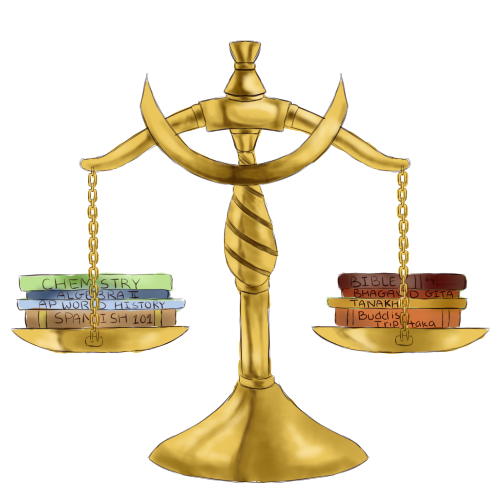

WHEN IT comes to religion, New York City public schools often struggle to accommodate all religious holidays. The religious diversity makes it difficult to create a school calendar that reflects every observance. This leaves Townsend Harris students in a precarious situation because it often involves choosing between honoring their religious and academic commitments.
Mayor Bill de Blasio and Chancellor Carmen Fariña announced the recognition of Eid al-Fitr and Eid al-Adha in the official school calendar for the upcoming 2015-2016 school year.
Prior to this inclusion, senior Sadiqa Taaseen struggled to prioritize school and religion. She commented, “I skipped school when I was in elementary and middle school. Since I went to school in a neighborhood that has a huge Muslim population, the teachers were understanding.”
As she moved on to high school, she realized that missing school was not an easy decision to make. “In my junior year of high school PSATs were the day of or the day after Eid,” she recalled. “It made me very nervous because it’s a religious holiday which I partake in but the PSAT appeared to be important as well at the time.”
With the rigorous curriculum of THHS, missing school can often cause stress, as students worry about falling behind. Junior Binyamin Simkhaev said, “It can be stressful at times because of missing out on tests and class notes but I manage. I usually ask teachers the day before for anything important I might miss and I ask friends for homework.”
Attendance secretary Yvette Reyes noticed that on certain religious days, more students tend to be absent. However, she remarked that “Students observe certain days and decide to take those days off. However, it does not affect attendance to the point where they are in danger because it’s usually only like two or three days.”
Religious observances not only affect students, but also faculty members. Regarding the impact of religious observances on attendance, Social Studies teacher Aliza Sherman said, “There really aren’t that many Jewish holidays that would affect my attendance. Rosh Hashanah is given off in the beginning of the school year and the same thing with Yom Kippur, and after that are the days of Sukkot, which are usually about four days that I have to take off. Usually Purim has been coming out on a Sunday, but when it doesn’t I would take that day off. We’re off all of Passover so thats not a problem. Shavuot actually comes out on Memorial Day this year so I don’t have to take any days for that, but usually I’d have to take two days.”
Other students who have religious duties on the weekend attempt to balance them with their schedules. Freshman Leah Musheyev, who observes the Jewish sabbath, stated that on Fridays, “I have to be home early so I leave school right after my club.”
Senior Kirandeep Kaur understands that attempting to balance both religion and school can be hard. She said, “Throughout the year, we have many Sikh festivals or occasions for which we stay at the Gurudwara late [at night]… Regardless of the fact that I would only get a few hours of sleep, I always pushed myself to make it to my 7:45 Humanities and QC classes.”
Ideally, explained Mayor de Blasio in his statement, students won’t have to choose between religious and academic obligations. “We made a pledge to families that we would change our school calendar to reflect the strength and diversity of our city,” he said.



























